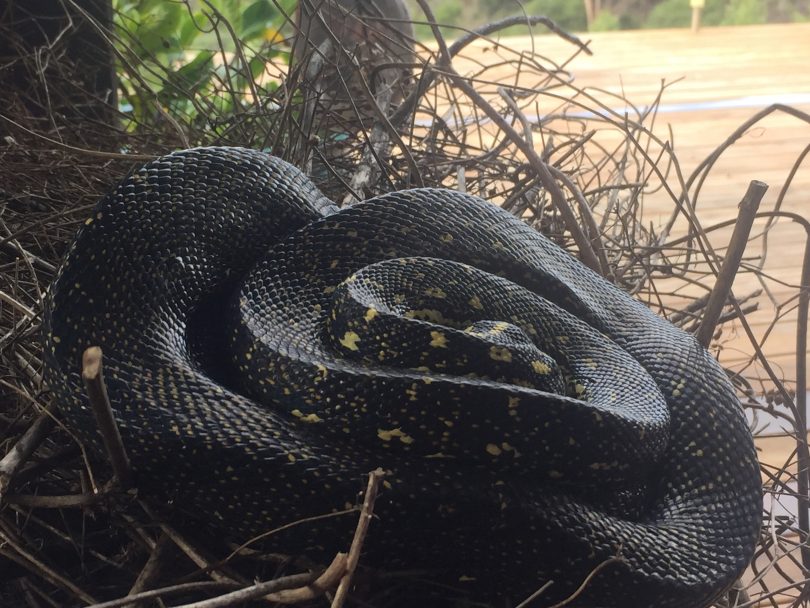
Pythons were among a range of reptiles seized during Operation Blizzard. Photo: Lisa Herbert.
Twenty-seven native pythons and three pygmy bearded dragons have been seized from a Canberra residence as part of a nationwide blitz on reptile smuggling.
The ACT Parks and Conservation Service recently conducted multiple inspections as part of a three-week international operation known as Operation Blizzard which ran from 22 April to 12 May and targeted the illegal trade of reptiles.
The Australian arm of the operation involved environmental agencies from every state and territory and included surprise raids, compliance inspections and random airport checks, resulted in the seizure of 69 reptiles.
It was coordinated by the Department of the Environment and Energy’s Office of Compliance and saw the Australian Border Force, the Agriculture Department and environmental agencies joining forces to combat wildlife trafficking at a national level.
The ACT Parks and Conservation Service said it was pleased to take part in Operation Blizzard and is currently pursuing ongoing investigations, including caring for the 30 reptiles it recently seized.
“Throughout the operation we conducted multiple inspections on both private and commercial reptile licence holders,” said an ACT Parks and Conservation Service spokesperson.
“We welcome any opportunity to educate licence holders and the wider community on the importance of reporting animals being taken from the wild or the keeping of unlicensed reptiles so that we can help combat the illegal wildlife trade and protect the biodiversity of the ACT.”
Australia and 13 other Interpol-member countries participated in Operation Blizzard, with Australian wildlife authorities executing seven search warrants against suspected illegal traders across Australia, as well as undertaking 51 wildlife compliance inspections which resulted in 17 detections of non-compliance.
Wildlife trafficking is a serious crime which seen as the cause of the decline of many species around the world.
The maximum penalty for wildlife trade offences under Australian law is 10 years’ imprisonment and a fine of up to $210,000 for individuals, or up to $1,050,000 for corporations.
“Operation Blizzard shows what can be achieved when our federal, state and territory agencies work collaboratively to disrupt wildlife crime. Officers from all agencies are working tirelessly to thwart this illicit trade,” said the Department of the Environment and Energy’s Chief Compliance Officer, Monica Collins.
ABF Superintendent Operations Andrew Dawson said the ABF will continue to work closely with its partner agencies to share intelligence to identify and prevent attempts to illegally export native Australian wildlife.
“This is an incredibly cruel trade and the ABF will continue to do whatever we can to stop it,” said Superintendent Dawson.
As part of Operation Blizzard, ABF officers at Melbourne Airport arrested a 27-year-old Japanese national with 17 shinglebacks and two blue-tongued lizards concealed in her checked-in luggage. The woman is suspected of being involved in an international wildlife trafficking syndicate.
In another part of the operation, the Department of Agriculture is currently investigating the detection of nine live turtles in an international mail parcel imported from Hong Kong.
“Illegal reptile imports pose a significant biosecurity risk, as they could introduce pests and diseases that can impact on human and animal health, as well as the environment,” said the department’s Chief Environmental Biosecurity Officer, Ian Thompson.
Operation Blizzard also saw 25 live and dead animals seized in Tasmania, including a large carpet python. On top of this, 13 animals were seized in Queensland, and two live pythons and a bearded dragon were seized in Western Australia.
Original Article published by Glynis Quinlan on The RiotACT.







